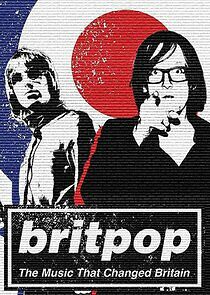|
The attitude-packed third episode tells the story of the movement's peak in 1996, when Britpop's trademark laddish swagger became inescapable on our TVs, in the tabloids and on the terraces – transforming British popular culture. But as Britain fell under the Britpop spell, a backlash was brewing… The swaggering tone was set by the increasingly dominant Oasis. Through rare archive interviews with Noel and Liam and an exclusive interview with Oasis Label boss Alan McGee, we get the inside story on their continued ascent - from the set of the Wonderwall video to putting on the largest concerts in British musical history and becoming the best-selling band in the world. The 1996 Brit Awards confirmed the changing of the musical guard. Oasis swept the board but the headlines were stolen by Jarvis Cocker. Fellow Pulp members Candida Doyle and Nick Banks reveal what led Jarvis to gatecrash Michael Jackson's performance, spend a night in jail and unwittingly dominate the tabloids (the answer is a private toilet, an overblown performance and the egging on of bandmates). But it wasn't just worlds of music and the tabloids falling under Britpop's spell, this was the year football went Britpop. The Lightning Seeds' Ian Broudie and the FA's former Communications director Steve Double reveal the inside story of how Three Lions was nearly nixed by the FA before becoming a timeless anthem of British football after a last-minute change of ‘provocative' lyrics. Riding along in Oasis's slipstream were a host of bands, notably Cast, whose frontman John Power reveals how Oasis gave them a well-earned leg-up, while other bands, including Dodgy reveal how they were less enamoured by the Gallagher's "selfish attitude". The increasingly laddish tenor of the times was summed up by Loaded magazine, and former editor James Brown defends his contribution to the scene. Lush's Miki Berenyi relates her experience as a woman in Britpop, asked in photoshoots to "basically look a bit pornified" while facing record-label demands to chime with the increasingly commercial times. As the Britpop bands continued to proliferate, a backlash was brewing in the trend-setting music press who turned mercilessly on bands like Shed Seven as lead singer Rick Witter recalls suffering headlines like ‘You Can't Get Sh**er Than a Thick Rick Witter.' It all adds up to a richly evocative chapter in the history of British pop culture, filled with fascinating anecdotes and rarely-seen archive from an era brimming with confidence and unforgettable music.
|

Running
|



hellsingfan01 : Yup if anything this film should have stayed as a TV series.